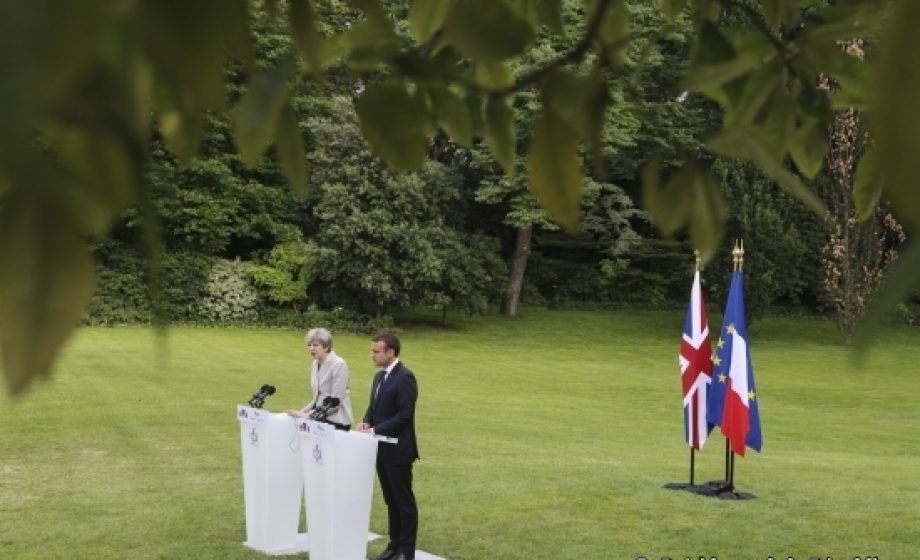
With her recent comments on tackling extremism online, Prime Minister Theresa May has not earned many fans among the tech industry in the UK or internationally. Nevertheless, she and many other British political leaders are sticking to an aggressive approach. On a trip to France earlier this month, May and her new counterpart Emmanuel Macron discussed how to introduce legal liability for tech companies who encourage or fail to crack down on extremist content. It is expected that this could include fines or other sanctions, though other methods are still on the table.
The United Kingdom and France have a long history of working together on anti-terror projects, and their shared status as targets for extremism has strengthened that bond. As attacks have increased in their number and severity (four in Britain in the last three months alone, including the most recent one in Finsbury), the two nations have come together to fight back against extremism on all fronts. Whereas their focus has previously been on a boots-on-the-ground policy, they are increasingly focusing their attention on how attackers have been indoctrinated. In a number of cases, terror suspects and other extremists are first radicalized online.
In a nutshell, the basic plan (still in its infancy, remember) is to force social media and tech companies to take an active role in cracking down on extremist content and propaganda meant to recruit impressionable youth. This will be done via legal liability for tech companies who do not succeed in removing such content. There has been much talk about ‘working with’ tech companies to do this, but the fact of the matter is that there is no ‘working with’ involved – the companies do not have a choice. It is a ‘with us or against us’ policy.
How well this will work remains to be seen, but what does it mean for tech companies on both sides of the pond?
To get an idea of how this mutual project may shape up for tech companies in the UK or France, it helps to take a look at Germany. Berlin is further ahead in implementing a similar solution, with fines of up to 50 million Euros for companies who fail to remove such extremist content quickly enough – between 24 hours and 7 days after it is brought to their attention, depending upon the severity.
These types of penalties are not just focused on terrorism or extremist content, either. Content which includes child abuse, animal abuse or other ‘unacceptable’ content are also central to the enforcement debate.
What’s interesting to note is that tech giants such as Facebook, Twitter, Snapchat, Instagram and others already have tools in place to remove such content. Most of them are turning to artificial intelligence to make moderation faster, with methods similar to data mining used to sift quickly through user-generated reports of explicit, illegal, shocking, or extreme content.
As a result, there has been push back to Theresa May’s project from both inside and outside the industry. One of the major factors is that May has been very vocal about ‘policing the internet’ and is strongly opposed to net neutrality. Those ideas are likely driven by a perception of the internet as a lawless swamp that needs a shining light cast on it.
In truth, this is not always the case. Many civil liberties and net neutrality activists are very unhappy with the increasing level of government interference online.
There is also evidence that the most recent attacks have hardly needed the internet at all, and were mainly carried out by recruitment cells also active within the host countries as well as in training camps abroad. Salman Abedi, who perpetrated the bombing on Ariana Grande’s May concert in Manchester, travelled to Libya just before carrying out his attack on concertgoers. Questioning the efficacy of heightened surveillance, there are growing claims that the these measures are just a foot in the door for government agencies to increase their policing presence online — using the online giants as unwilling accomplices.
Whatever the truth, two powerful European leaders coming together to force tech companies to tackle extremism in the online sphere is sure to have a profound effect. Between them, May and Macron have the power to ensure compliance is closely linked to what matters most to these companies – profits. Though many companies are making progress on their own, such as Facebook hiring 3,000 more moderators to pore through and pass judgement on such content, the collaboration between the UK and France will steer private companies and corporations towards a far more active stance in online policing of user-generated content. For better or for worse, it looks like this will be the new normal.
The views expressed in this article represent the author’s personal opinions and do not reflect the views of RudeBaguette.

